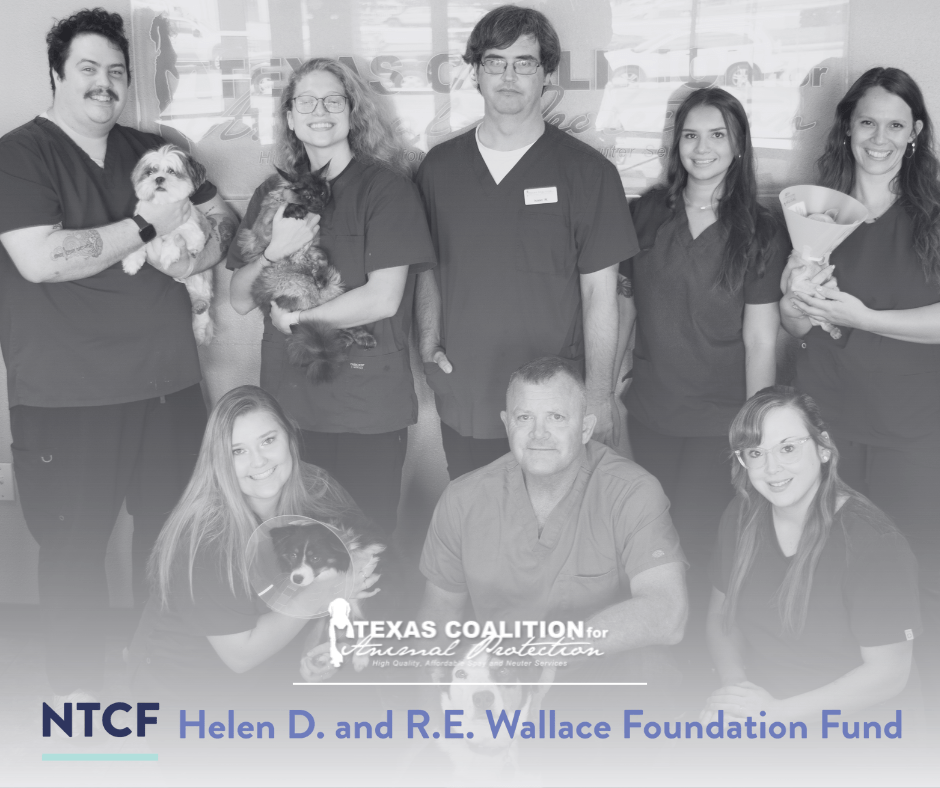Texas Coalition for Animal Protection receives $6,500 Grant from The Helen D. and R.E. Wallace Foundation Fund at North Texas Community Foundation
Fort Worth, Texas – [November 10, 2023] DFW-based nonprofit Texas Coalition for Animal Protection received a $6,500 grant earlier this month to fund free spaying and neutering services for pets living in 14 Fort Worth zip codes.
The grant, generously provided by The Helen D. and R.E. Wallace Foundation Fund at North Texas Community Foundation, aims to curb overpopulation in areas indicated by the Fort Worth Animal Shelter as high-intake areas.
“With this infusion of funding, we will be able to continue this program, which has already had a tremendous impact on pet overpopulation in the area,” said Stacey Schumacher, TCAP Executive Director. “We are grateful that grants like these exist and are available to our North Texas community.”
TCAP’s Fort Worth Free program, now in its fifth year, offers pets residing in these ZIP Codes a free sterilization procedure and a rabies vaccine. Appointments are required to take part in the program, and residents must confirm their eligibility in one of the included ZIP codes via a utility bill or government-issued ID.
Eligible zip codes for this initiative are 76102, 76103, 76104, 76105, 76106, 76107, 76110, 76111, 76112, 76114, 76115, 76116, 76119, and 76140.
To participate in this program, schedule your pet’s appointment by calling 940-566-5551.
About Texas Coalition for Animal Protection (TCAP):
Texas Coalition for Animal Protection is a nonprofit organization committed to providing high-quality, low-cost veterinary services to underserved communities. With a focus on spay/neuter surgeries and preventive care, TCAP seeks to reduce pet overpopulation and improve animal welfare across Texas. Through its eight North Texas locations, more than 40 offsite travel locations, and educational initiatives, TCAP strives to make a significant and lasting impact on the lives of animals and those who love them.
About North Texas Community Foundation (NTFC):
North Texas Community Foundation drives meaningful change through charitable investment. The Foundation helps donors meet the needs of our community by providing tax-efficient strategies to support the causes they care about most. At the core of everything we do is a network of generous individuals, families and businesses intent on shaping the future of North Texas for good, forever. The Foundation has $519 million in assets and made grants totaling approximately $30 million in 2021. Learn more at northtexascf.org












